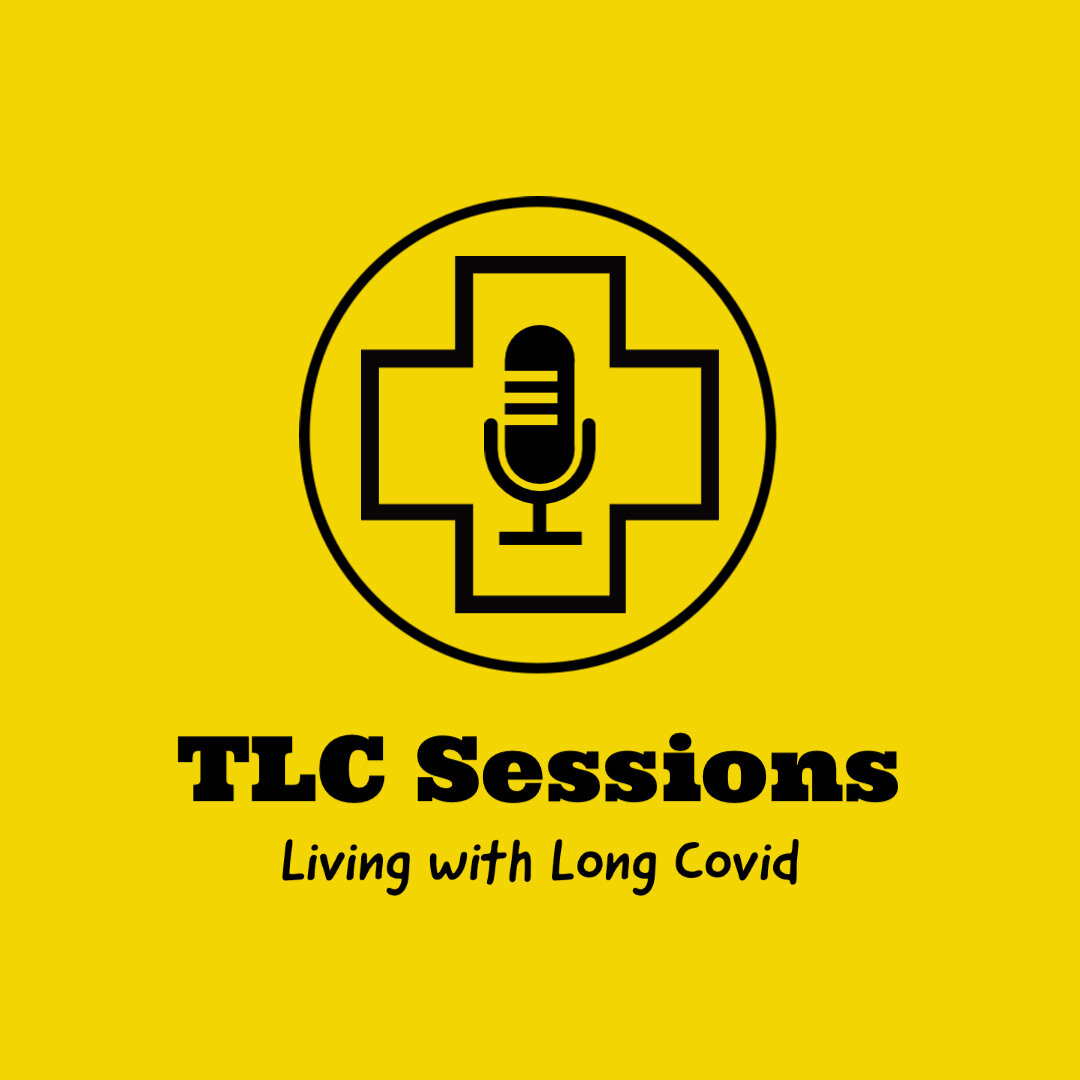Find out about the latest episodes, and listen here:
Episode 77: Dr. Theoharis Theoharides - the mast cell master
“Do you classify Long Covid as a neurological condition, for everyone, regardless of their symptomatology?”
“Absolutely yes, I think a major component of Long Covid is neurological, and by neurological I don’t mean only central neurological, peripheral neurological….”
Episode 72: Dr Thomas Chelimsky - autonomic dysfunction, migraine and trauma
“You have this chronic central nervous system influence on the body, such that there's inadequate return of blood to the brain… but the problem is not with the not with the veins, the problem is not with the blood return, the problem is not even with the nerves… The problem is with the central command system… so in this model, the idea would be that Covid is the trauma and that's it's turned on this switch, and Long Covid is the failure to turn off the switch.”
Episode 71: Dr Andrew Klein - Iron and B12 deficiency
“The number one symptom that people present with when they've got Long Covid or pernicious anaemia or iron deficiency is fatigue. So that is across the board in all three conditions. And then the second most common symptom is shortness of breath, palpitations, dizziness, fainting, difficulty sleeping, brain fog, pins and needles joint pain, depression and anxiety…”
Episode 67: Prof. Andrew Shaw – Antibody gap
“We're going to look at our antibody spectrum to do a diagnostic accuracy study. What I expect to find is there'll be groups of patients where some of them have holes around the onset of the of the Long Covid symptoms. “
Episode 66: Prof. Danny Altmann Returns
“When we talk about Long Covid on planet Earth, I think the lower estimates are about 60 million and the upper estimates are at 400 million globally. It's not a disease of the wealthy worried well in the UK or the US or whatever, it's a disease of six to 10% of everybody on planet earth has ever had COVID-19, no matter where they are. So if the stakes are that high, why on earth can't we regain some of that battle spirit and momentum? I think it does come into kind of policy and politics.”
Episode 64: Michael Peluso, M.D. – Viral reservoirs & MAB trial
“The first year of this was recognising the problem and getting people to buy into that... The second year of this was describing who was most likely to get this condition. The third year of this was laying out potential biology. The current era of this now needs to be proving that each of those mechanisms is or is not driving this and… you actually have to intervene on those pathways to see if you can change either a biological measurement or change how people feel. What that means to us is doing trying to do these intense proof of concept, experimental medicine type studies, where we identify a target pathway that we think it is contributing, then we try to alter it by giving an investigational treatment and we see what happens and whether our hypothesis was correct.”
Episode 63: Eric Topol, M.D. – Cardiologist and prolific Long Covid author
“If we’ve learned anything, this is not something anyone wants to get… The fact that there's a genomics that underlie Long Covid tells you how real it is, right? And then the fact that we will get treatments to people, all these things reinforce how big an issue.”
Episode 61: Dr Leo Galland – A functional approach
“The conventional model is trying to identify what disease does this person have, and then you treat the disease. Well, that may work in some situations… but there are many situations involving chronic illness in which that doesn't work. And I've evolved and taught other approaches to diagnosis, something that I call person-centred diagnosis.”
Episode 60: Research-Aid Networks – all about the acid-base
“We’re trying to develop clinical trials ourselves, to look at this combination of clinical point testing, where we can actually do that very robust analysis of saying, what's going on in terms of blood gases, what's going on in terms of bicarbonate, what's going on in terms of pH? How is that affecting patients at rest and in movement, and how does that correlate with symptoms?”
Episode 59: Dr Wes Ely - Treating with humanity
“I would word this as a massive public health problem… crisis that most of the world is yawning through and sleepwalking through. I think people are sleepwalking through this because it's too invisible.”
Episode 56: Dr Jim Jackson - Clearing the Fog
Dr Jim Jackson, research professor of Medicine and Psychiatry at Vanderbilt University Medical Centre, does not believe that Long Covid is all in your mind, but he has found that treating the brain, as if it has a brain injury, can help Long Covid recovery. In this week’s episode Dr Jackson explains his clinical experience of the neurological impact of Long Covid from brain fog to anxiety, PTSD to OCD. He discusses the power of cognitive rehabilitation (which should be viewed as physiotherapy for the brain) and tells us about his book “Clearing the Fog: A practical guide to surviving and thriving with Long Covid”. And he talks us through the power of talking to others within the community: his support groups have been a hugely impactful for sufferers enabling them to learn from each other, learn how to advocate for themselves, and give them hope.
Episode 49: Dr Benjamin Natelson - Chronic Fatigue Syndrome
“As I expected SARS COV-2 has produced its own mini epidemic of chronic fatigue syndrome.”
Episode 48: Harry Leeming – founder of Visible
“We're tracking heart rate variability, heart rates, and we're also tracking posture as well. It's a really important one. We know that underlying these conditions is some level of dysautonomia, I think 70% or so people with Long Covid would qualify, or would fail the NASA lean test.”
Episode 45: Amiad Abrahams – Mindfulness
“Mindfulness is one of the things we do. Basically, the idea is to allow people to feel like themselves and not to allow this painful, unsettling reality to divert from that. Because even when we suffer, and we do suffer - all human beings, or listeners of this podcast - it's never really perfect, and sometimes it's really horrendous… We are still ourselves.”
Episode 44: Prof. Doug Kell - microclotting
“So we know that the clots are much more resistant to proteases that normal clots are - that's kind of expected. They're not totally totally resistant, otherwise you'd really be in trouble, but they are significantly more resistant. And the consequence is that therefore they hang around, they can go and do bad things..”
Episode 43: Dr Tae Chung - POTS, the nervous system and autoimmunity
“There's some kind of indirect evidence suggesting that the sympathetic nervous is dysfunctional in POTS or Long Covid patients, and given the post-infectious nature, I suspect this is some kind of inflammatory, maybe autoimmune, reaction… probably our body is attacking our sympathetic nervous system”.
Episode 42: Vedicinals9 - Joachim Gerlach
“Each of these molecules just by itself is already pretty good in tackling Covid conditions, inflammation, organ damage, and many of these pathways. So for us, then the next question was - is this mix of nine molecules, from the pharmaco dynamics and from the safety profile, is that viable?”
Episode 41: Dr Eric Feigl-Ding – Epidemiologist and Public Health Scientist
“.. if people realise that Long Covid is basically an immuno-compromised state, akin to immune compromised status of having HIV then I think …. it will actually change the course and the political momentum.”
Episode 40: Dr Bettina Hohberger – look into my eyes… and BC007
“In ophthalmology there is a sentence - the eye is the window to the body - that’s a common theory which we use in our normal clinical life”. So could we use the eye to diagnose Long Covid?
Episode 13: Dr Amy Small – a ray of hope
There is hope… this week we talk to Dr Amy Small, GP and former Long Covid sufferer.





















